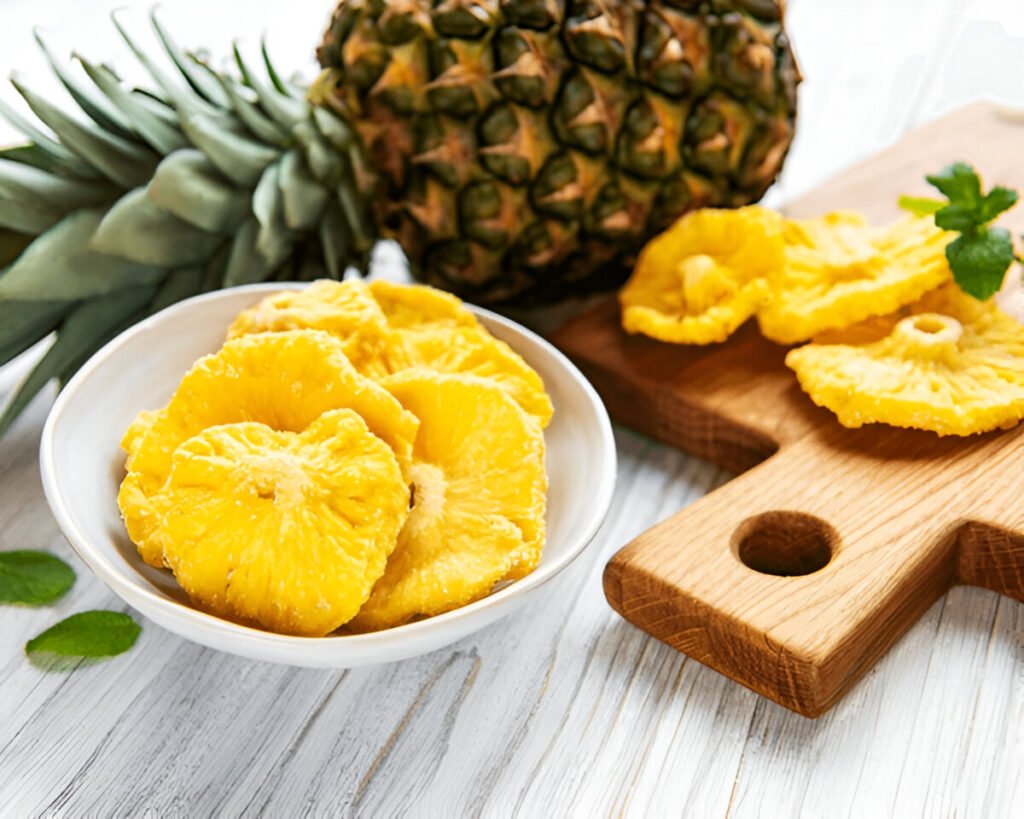
Bangladesh, a country rich in agricultural diversity, is increasingly becoming a hub for innovative food processing ventures. Among the emerging opportunities is the production of pineapple chips—a tasty, nutritious snack with strong local and export potential.
In Bangladesh pineapple is grown plenty during its season May to August. The Peak season is June to July where plenty of pineapples are grown in Sylhet, Mymensingh, Tangail and Chattogram Hill Tracks. The popular variety is the “Giant Kew” which is juicy, sweet and large in seize. During off season pineapple can be grown in greenhouses or use stagged planting but the supply and quality may vary.
In season this fruit is grown in such a huge quantity that farmers sometimes have to sell this nutrient fruit in a very lower price than it deserves. Many pineapples are also wasted due to low transportation facility from the Chattogram Hill tracks and farming location far from the point of selling. During season every day several trucks bring pineapple to its capital Dhaka ton by ton. Many of these pineapples could not be sold and are wasted due to proper marketing strategy, lower eating habit of pineapple compared to other seasonal food and supply chain.
To overcome this issue, in Rangamati a project was taken by the Department of Agricultural Extension (DAE) Horticulture Centers (HCs) in Naniarchar to build a small project of Pineapple chips factory in pre-Pandemic situation (around 2019) as a pilot project to see how it performs. The project was called “Year-round Fruit Production (YRFP)”. In the beginning it got a good hype. The project started in a small scale as a pilot project and had a very investment. The target was to produce Pineapple chips to save pineapples from being rotten as it had a difficult transportation rout from that remote region of Naniarchar, Rangamati.
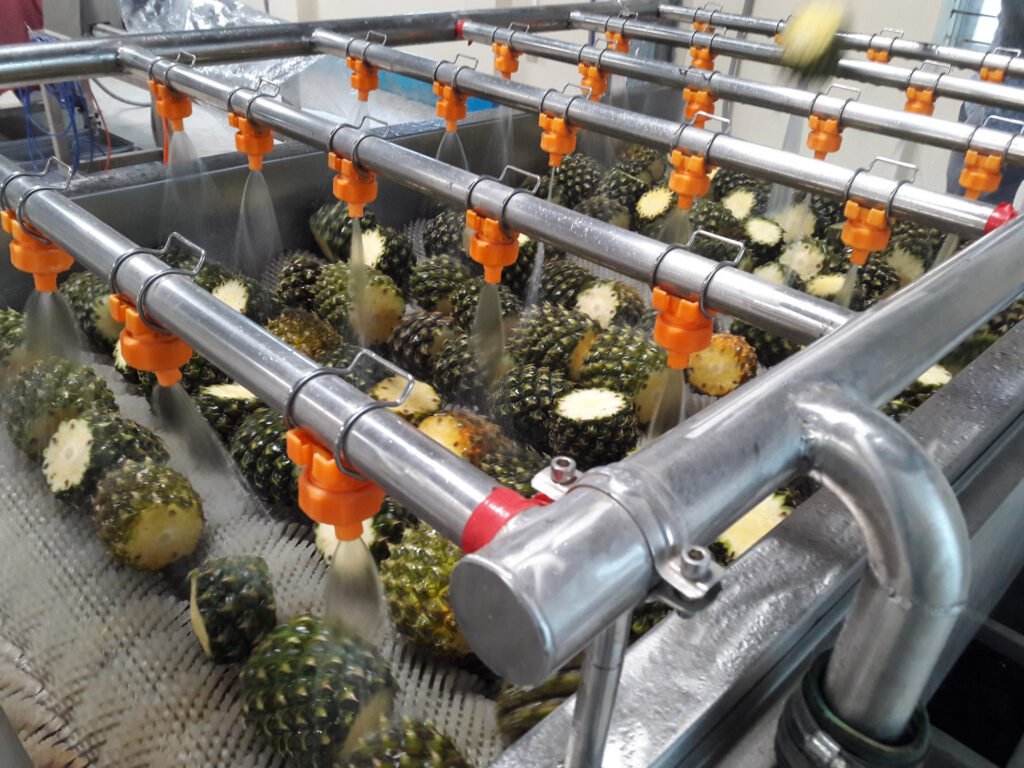
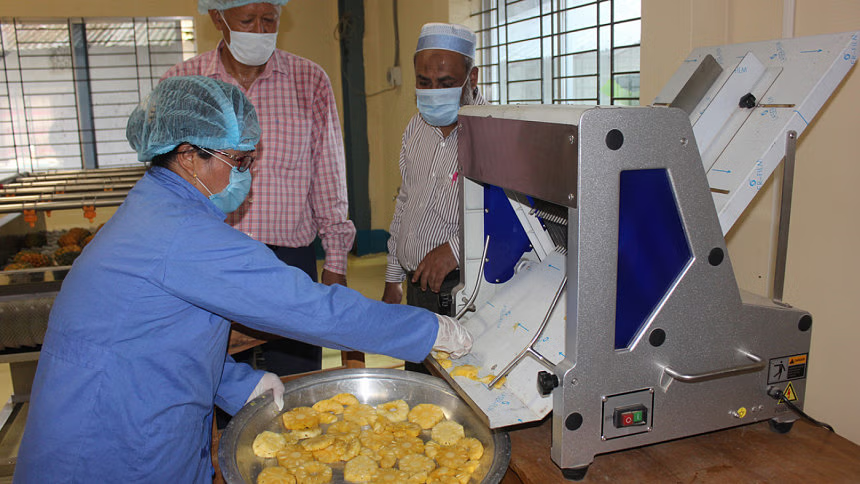

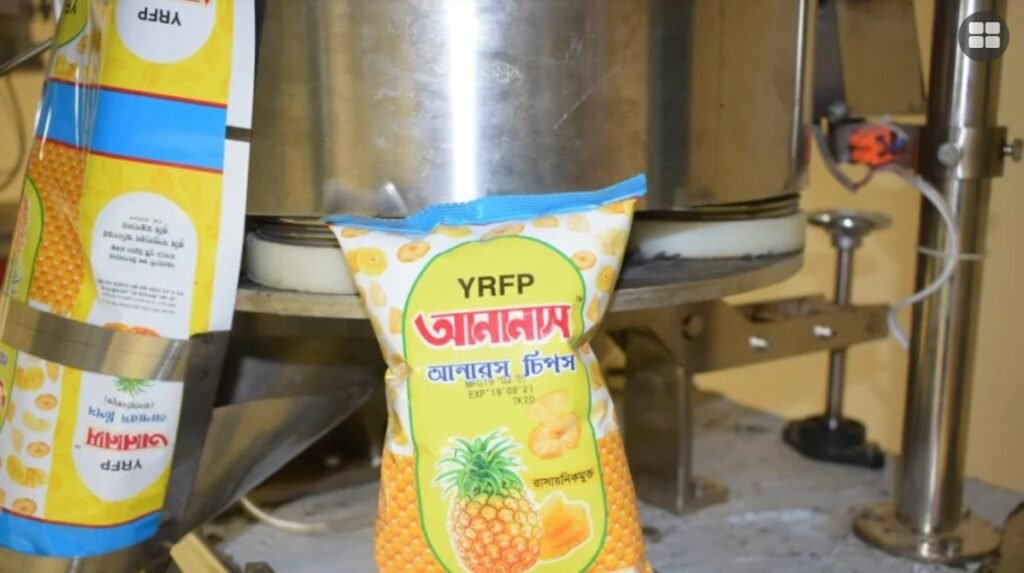
Many mainstream news portals had published the news:
SafeBiz visited the site on April 2025 in Naniarchar, Rangamati to see the present status of the factory. It was shocking to see that the factory was totally shutdown and no production was going on. After discussing with an officer of the Horticulture Center we came to know that the project is closed for 2 years. It was a pilot project to see how the pineapple chips perform in the market. He said the project failed due to not been able to produce quality chips and there was no way to solve the issue anymore. The reason of the failure is the chips were getting darker (black) after few days when the packets were been opened. They have tried many preservatives but no positive result was there. The Project Director of this project Dr. Mehdi Masud has also transferred to another location.
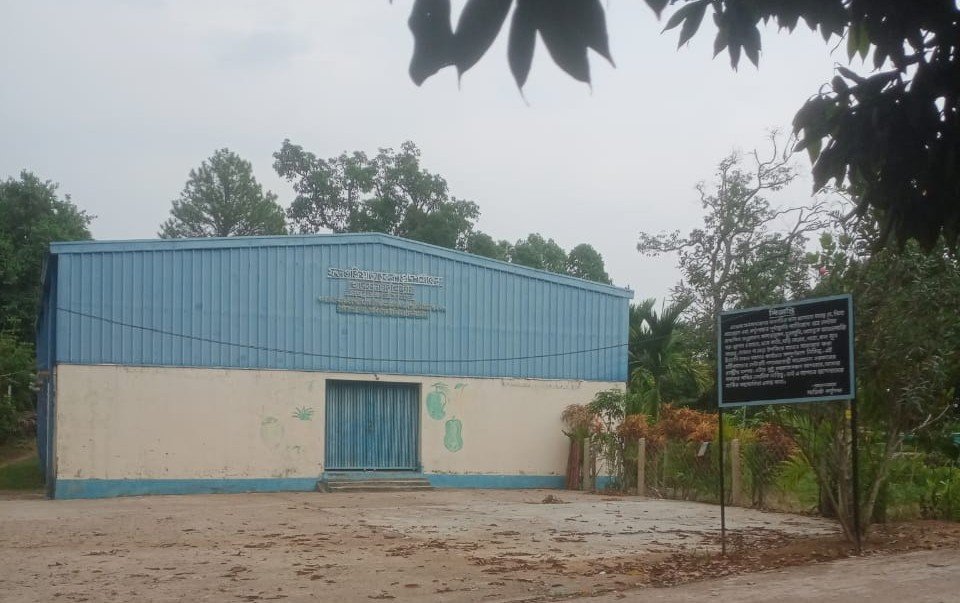
Our team managed to contact Dr. Mehdi Masud and found more information of the project. He said due to the lower demand for pineapple chips compared to its original fruit demand, the project was not successful. People preferred the fruit for its nutrition value rather than the dry food (chips) which seems the nutrition values to be lost during the drying process. Also, a 25gm packet chips cost 50 taka which was not feasible for the market. Dr. Mehdi suggested if the product can be exported and sold to the countries where pineapple is rear, then only the business will be sustainable. He also suggested to process it in Freeze Dryer instead of oven dryer because the Freeze Dryer maintains the nutrition’s, texture and aroma of the pineapple very well. However, a freeze dryer is very expensive (around 1 crore BDT) so only a huge level of funding can make the project successful. The project they had was a very small capacity production plant and had oven dryer instead of a freeze dryer. For being a small factory, the production cost was also high which led to high price for a 25gm chips packet.
Here is an article on Why Pineapple Chips gets brown and how to stop it
Dried fruit snacks like pineapple chips have grown in popularity globally due to their health benefits, extended shelf life, and portability. Pineapple chips, in particular, are:
In Bangladesh, where traditional fried snacks dominate, fruit-based alternatives offer a modern, health-conscious twist—especially appealing to urban consumers and young professionals.
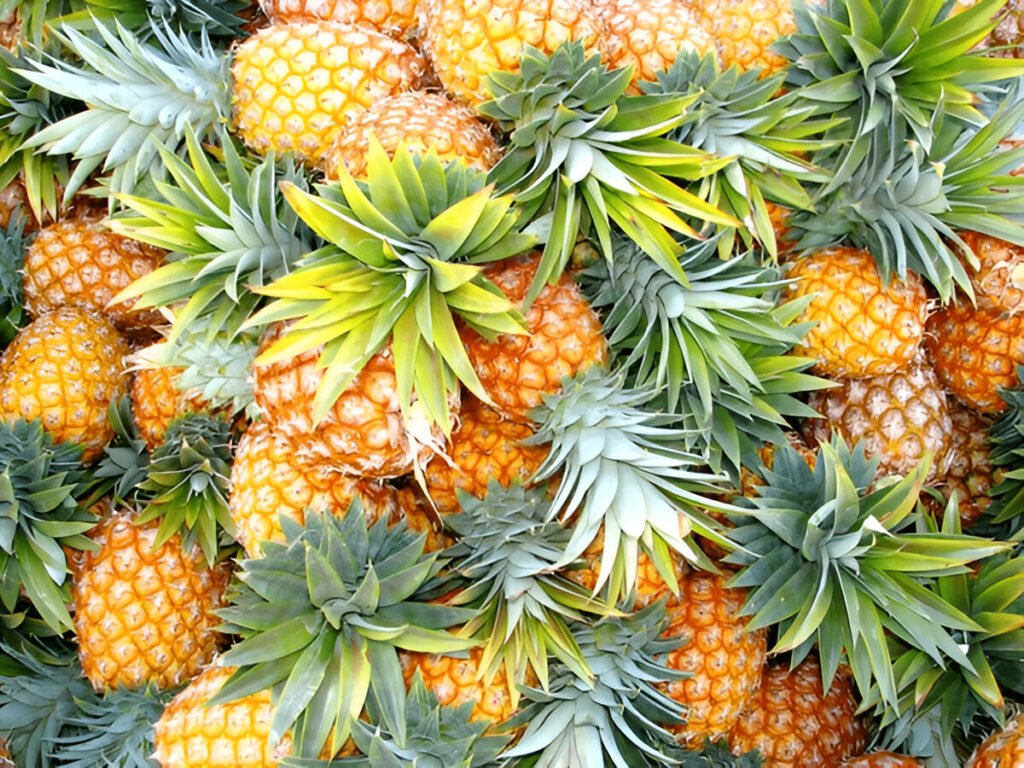

The global dried fruit market is expected to reach USD 10.5 billion by 2027, driven by rising health awareness and demand for natural, shelf-stable snacks. Pineapple chips are securing a growing niche, offering a sweet, fiber-rich alternative to conventional processed foods.
In Bangladesh, changing consumer habits, the growth of e-commerce, and the rise of boutique food brands are creating strong opportunities for dried fruit businesses. The local market is increasingly drawn to healthier, ready-to-eat snacks, making dried pineapples an appealing choice.
From a business perspective, the numbers add up. A 50g packet of pineapple chips typically sells for 20 BDT, while raw pineapples during peak season can cost just 10–15 BDT each. Each fruit can yield multiple packets, ensuring a good margin.
This simple, scalable business model has real potential for both local sales and export.
Yearly Supply Chain Optimization:
One of the biggest challenges in agriculture is seasonality. Pineapples, like many other fruits, are harvested during specific periods of the year. During peak harvest seasons, supply often exceeds immediate demand, which can lead to wastage and reduced prices for farmers.
By investing in off-season processing through drying or semi-drying, businesses can effectively extend the life of the fruit. Semi-dried and dried pineapples can be stored for months without the need for refrigeration, allowing producers to manage inventory and sales more flexibly throughout the year. This not only reduces losses during peak harvests but also ensures a continuous supply of quality products for both local and international markets, transforming what is usually a seasonal product into a year-round business opportunity.
Tapping into Global Export Opportunities
The global demand for dried fruit snacks continues to grow, especially in regions where healthy snacking trends are on the rise. Dried pineapple, in particular, has found a strong foothold in international markets, especially in countries with significant South Asian communities such as those in the Middle East, Europe, and North America.
For many in these diasporas, dried fruits are more than just a snack — they’re a connection to home, a familiar flavor wrapped in convenience and nostalgia. Beyond ethnic markets, health-conscious consumers worldwide are also seeking natural, preservative-free snack alternatives, placing dried pineapple in an excellent position to meet this demand. Businesses that can meet international food safety standards and offer consistent quality have the opportunity to access lucrative export markets and build long-lasting trade partnerships.

Driving Job Creation and Empowering Local Communities
Pineapple processing is more than just a profitable venture — it’s also a catalyst for social and economic development, especially in rural and agricultural regions. By creating a structured value chain from farm to factory to market, pineapple processing businesses provide a stable income source for local farmers who might otherwise face fluctuating prices and market instability.
Additionally, the establishment of food processing facilities opens up a wide range of employment opportunities, from fruit handling and slicing to packaging and logistics. These jobs often require varying levels of skill, making them accessible to a diverse segment of the community, including women and young adults.
Beyond direct employment, pineapple processing encourages entrepreneurship at the grassroots level — enabling farmers, transporters, equipment suppliers, and packaging businesses to thrive in a mutually supportive ecosystem.
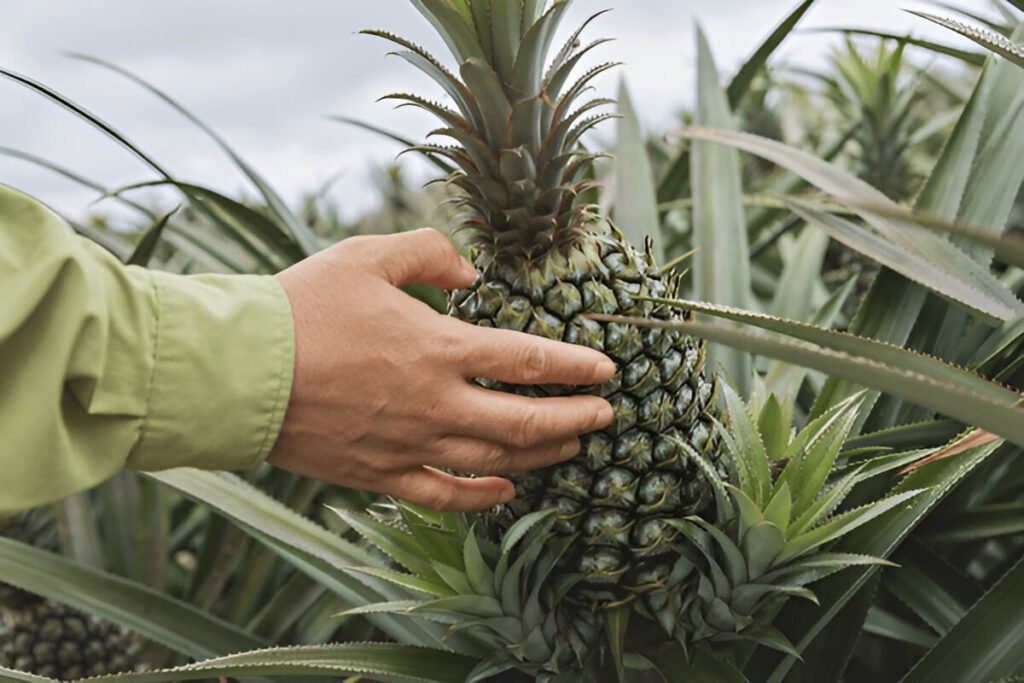
With strategic planning, investment in quality processing, and smart branding, pineapple chips have the potential to become a flagship product for Bangladesh’s agro-processing industry. It combines the country’s agricultural strengths with modern food trends, offering both local nourishment and global appeal.
Now is the time to transform this tropical fruit into a crispy, flavorful success story.
To contact our expert to know about the business prospective or to take business consultancy, feasibility study, please contact us.